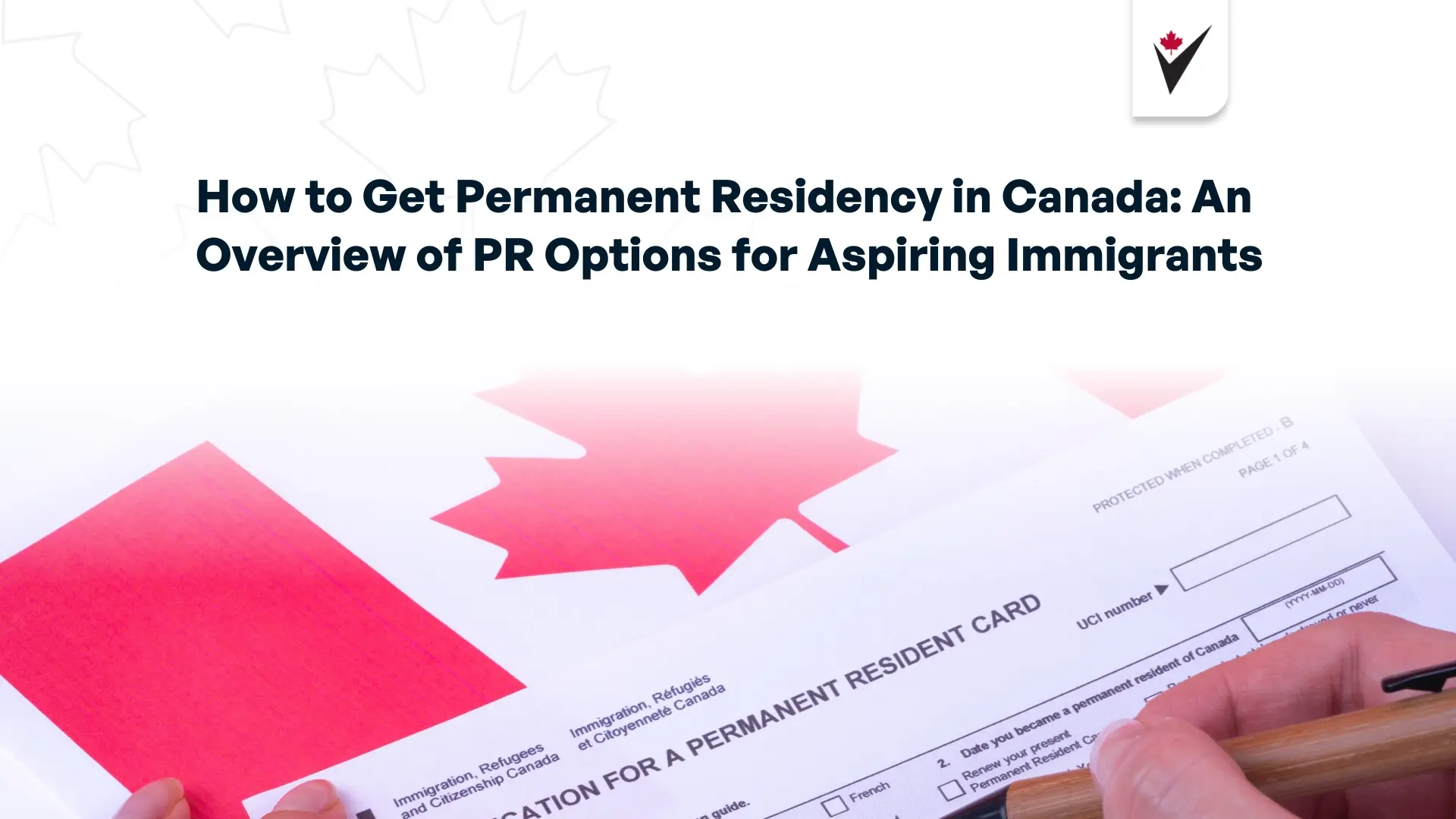- Immigrate
- Programs
- Express Entry
- Canadian Experience Class
Canadian Experience Class
Express Entry to Canada for Applicants with Canadian Work Experience
The Canadian Experience Class program allows skilled workers with Canadian work experience to apply for permanent residence. Applicants who receive permanent residence through the Canadian Experience Class can live and work anywhere they wish in Canada, except in Quebec.
What is the Canadian Experience Class?
The Canadian Experience Class for Express Entry toCanada is designed to allow skilled workers with relevant Canadian work experience to live and work in Canada, permanently. It places applicants on the fast track to permanent residence, by asking them to simply demonstrate their skilled work experience as well as their official language proficiency.
The Canadian Experience Class program is one of three categories of Express Entry available to skilled workers. Express entry programs are processed relatively quickly, once received, with many being reviewed and determined within 6 months for inland applicants.
Permanent Residence Through the Canadian Experience Class
There are five main steps in the application process for the Candian Experience Class express entry program:
Step 1: Work out if the applicant is eligible.
Step 2: Get the documents ready.
Step 3: Submit the applicant’s profile to the pool of candidates.
Step 4: Receive an invitation.
Step 5: Apply for permanent residence through the Canadian Experience Class.`
Step 1: Eligibility for the Canadian Experience Class
To be eligible for the Canadian Experience Class (CEC) express entry program, the applicant must meet the official language requirements and have worked for at least 1560 hours in a NOC 0, A or B position while living and working in Canada as a temporary resident with authorization to work.
Language Requirements for the Canadian Experience Class
Applicants must take an approved language test that assesses their official language proficiency skills for reading, writing, listening, and speaking. Any applicant who is applying for the CEC Program for work experience in a job classed as an NOC 0 or A job, must score at least a Canadian Language Benchmark 7 across each of the four skills. Applicants applying for the CEC Program for work experience in a job classed as an NOC B job must score a CLB 5 or higher across each of the four skills.
Work Experience Requirements for the Canadian Experience Class
The applicant must have completed at least 1560 hours of skilled work in Canada in the 3 years before they submit the application. The 1560 hours requirement can be met in a number of ways:
- 30 hours per week for 12 months at one job – or for multiple employers.
- Part-time for a period of longer than 12 months – for example, 15 hours per week for 2 years.
The IRCC will only consider 30 hours per week. Applicants who work 40 hours each week will still need to work for an entire year before meeting this requirement, as 10 hours per week do not count towards the total.
To be considered a skilled worker, the applicant must work in an NOC 0, A or B skill level position.
Skill type 0 jobs are management jobs.
Skill level A jobs are professional jobs that usually call for a degree from a university.
Skill level B jobs are technical jobs and skilled trades that usually call for a college diploma or training as an apprentice.
Applicants must have worked in Canada legally while under temporary resident status.
TO DETERMINE WHETHER THE APPLICANT IS ELIGIBLE, COMPLETE OUR IMMIGRATION PRE-ASSESSMENT HERE.
Step 2: Documents Required for the Canadian Experience Class Program Application
Since applicants only have 60 days to submit the application once they’re invited, the documents should be in order before the applicant submits their profile to the IRCC pool. The documents required will vary, but an applicant may need some or all of these documents:
- Passport.
- Language test results.
- Educational credential assessment report or proof of education in Canada (if any).
- Provincial nomination (if the applicant has one).
- Written job offer from a Canadian employer (if any).
- Proof of work experience, including proof that the applicant performed all the essential duties and most of the main duties set out in the lead statement of the occupational description in the NOC.
- Proof of funds.
- Police certificates.
- Medical exam.
- Birth certificate (if the applicant is declaring dependent children).
- Proof of relationship (if any).
- Recent digital photos.
- Proof of name change (if any).
- Use of representative form.
Step 3: Apply for Express Entry Under the Canadian Experience Class Program
To apply for express entry under the Canadian Experience Class program, an applicant must create and complete an Express Entry profile. Applicants should have the documents outlined above in advance of submitting the profile to the IRCC, since applicants will only have 60 days to submit their application for permanent residence after they receive an invitation.
Once the applicant’s profile is submitted, they will receive a CRS score that is used to rank them against other eligible candidates. The higher the score, the more likely it is that the applicant will be invited to apply for permanent residence in Canada under the CEC program.
The CRS score is calculated by adding the applicant’s core points and their additional points.
- Core points: Up to 600 points
An applicant’s core points are based on their education, work experience, age, and language proficiency. Their partner’s factors, including the partner’s language skills and education, are also considered here.
It is not essential that an applicant include details of their education for the CEC program application. However, their education may increase the applicant’s score, so it is typically beneficial to include the relevant details, as well as the Canadian equivalency certification.
- Additional points: Up to 600 points
An applicant may receive additional points if they have a valid job offer, a provincial nomination, a brother or sister living in Canada who is a citizen or permanent resident, strong French skills, and/or a Canadian degree, diploma or certificate.
Step 4: Wait in the Express Entry Pool to Receive an Invitation to Apply.
During this time, applicants should work on improving their score, by seeking a valid job offer from a Canadian employer, improving their education or language score, or gaining further skilled work experience (if the applicant is outside Canada). A valid job offer is an offer from a Canadian employer of full-time continuous paid work for at least 30 hours per week for one year.
The applicant should ensure their details remain up to date on their account profile, too.
Step 5: Submit the Application for Permanent Residence.
If the applicant receives an invitation to apply, they will have 60 days to submit an application for permanent residence.
If the applicant hasn’t already sought guidance from a registered migration consultant, they should reach out as early as possible after receiving the invitation to apply.
Regulated Canadian Immigration Consultants (RCIC-IRB)
Proudly regulated by and in good standing with the College of Immigration and Citizenship Consultants (CICC). Jamie Dowla, registration #: R507233.

Our Canadian Immigration Success Stories
Learn About All of the Great Things
Canada Has to Offer!
Canadian Immigration News, Tips, and Resources

How to Get Permanent Residency in Canada: An Overview of PR Options for Aspiring Immigrants
For many aspiring immigrants, the dream of building a new life in Canada begins with securing permanent residency. Canada offers a welcoming environment, a high quality of life, and a wealth of
read more
How Long Does it Take to Get Canada Permanent Residency: 5 Factors That Can Affect Your Processing Time
If you’re seeking permanent residency in Canada, one of the most pressing questions you may have is: how long does it take to get Canada permanent residency? The waiting period can be a significant
read more
Top-Ranked Canadian Universities for International Students
Every year, Canada welcomes hundreds of thousands of international students. When you study in Canada, you invest in your future. In this article, we’ll explain why Canada is an ideal destination for
read moreFind Your Licensed Immigration Consultant
Wherever You Are Located
We assist clients across Canada and internationally. See the countries below to find your regulated Canadian immigration consultant.

